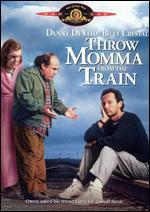I had an amazing experience which I just have to share…the positive point is that the buyer did wind up with her home but it was under the brunt of stress that was unnecessary. You see, sometimes when things begin to go wrong in a transaction, fingers will waive and point vigorously undeservedly. People will want to remain shiny, positive and virtuous to their referral provider and will therefor, throw someone "under a bus" or "into a train". I was recently almost thrown and I spared myself fighting all the way.
We had loan documents to the escrow company just over a week prior to closing (still pretty darn good)…no HUD-1 from the escrow company until a day before the buyer was signing (after many request for an estimated HUD-1. I want to review them to make sure my closing costs from the Good Faith Estimate are in line with the Estimated HUD-1 Settlement Statement).
The client signs two days before closing and I assume all is well until I receive a panicked call from the home buyer on closing day stating that we are not closing. She’s very upset because she has learned from the Listing Agent and the Escrow Company that her purchase is not funding because my company released it too late. This is a total surprise to me since our office did fund on the transaction.
My first step, after calling my client to let her know that I’m "on it" and that this is news to me (because escrow NEVER called me) is to call escrow and find out "what’s up". At this point, it’s 4ish in the afternoon and there are no more new recordings taking place at the county.
The Escrow Officer is schmoozy and tells me that we (the mortgage company) released the recording a little late which made it difficult for the title company to get documents to the county. I let the EO know that previous to lending, I was in the title industry where my career began with recording documents and ended with managing an escrow branch. The EO had days (a week) to sign the client and provide documents to the title company for recording…yet she’s still trying to pin the blame on the mortgage company. We, in fact, have emails to the escrow officer confirming she has our wire and she’s okay at proceed with recording.
Although this EO returns our funding package two days before closing (thanks to how many days in advance we provided the loan package to her) yet waits until the day of closing to send the loan documents to the title company. She tried to tell me that we released too late at 2pm when I know that the county courthouse will take recordings until 3:30. I’ve done many "walk on’s" myself way back "in the day". Regardless, she and/or the title company could have had the documents to the court house MUCH earlier.
I only learned about the recording mishap only because my client called me ready to rip my face off since she was told this was the fault of lender when it was anything but the case.
The escrow officer and title company are lucky that I’m not naming them. I’m not one to bash (although check back if this happens again)! As someone who was in the title and escrow industry for so many years, there is no way that I would have unjustly thrown someone "under the train" and I find it extremely concerning that the only way we learned about recording/closing issues was from the buyer. If the buyer had not called us late in the day, we would have had NO idea that the loan we funded on did not record. Why didn’t the Escrow Officer contact us? A short staff is no excuse for not contacting the mortgage company (when the EO did communicate with the buyer and agents). In fact, there is no excuse.
How did this wind up? The title and escrow company have both since admitted fault. The title company is going to indemnify the transaction as if it had closed on the day it should have. And the buyer did get her keys to her new home.
What happened to working together? I don’t remember throwing Mortgage Professionals under the train or bus like I’ve witnessed recently–are EO’s so afraid of losing business they’ll make a sacrifice play to impress their agents?
NOTE: My preferred title and escrow company contacted me concerned this could appear as if it where one of their Escrow Officers that "threw me off the train". Without naming names, this was a different company.










Recent Comments